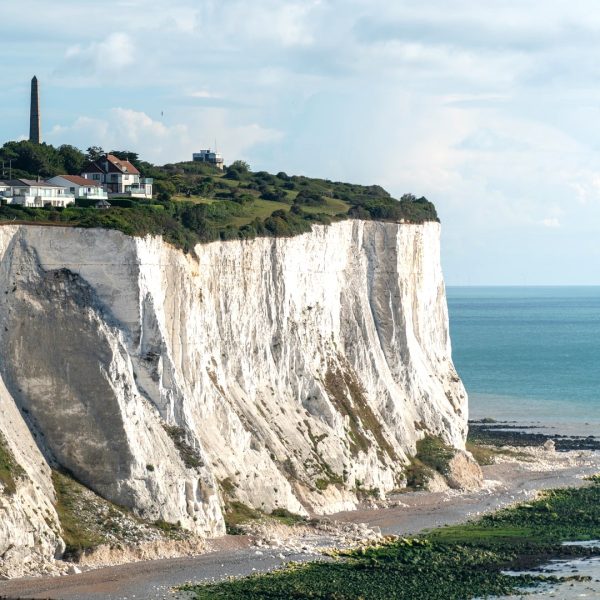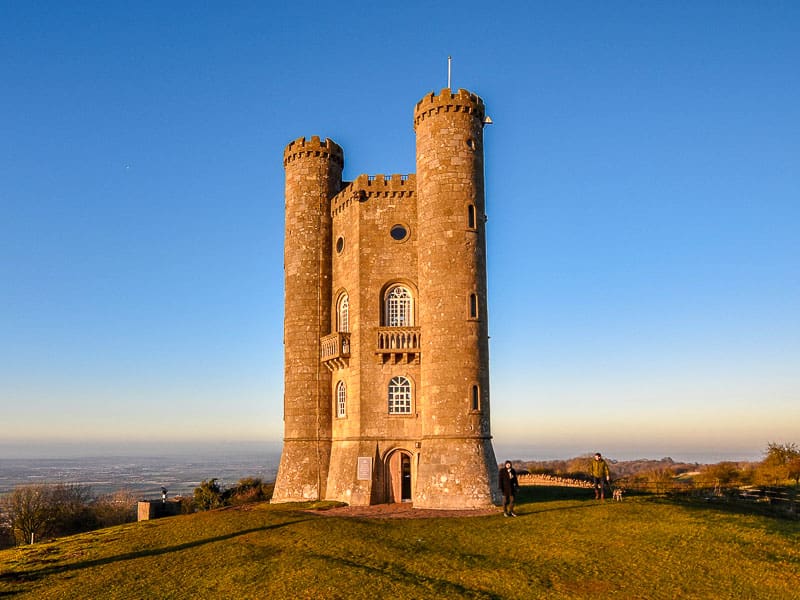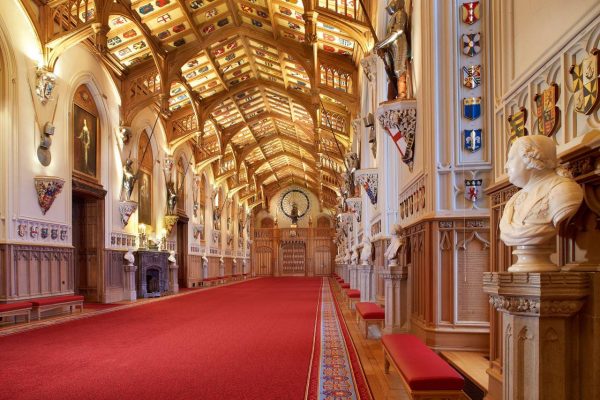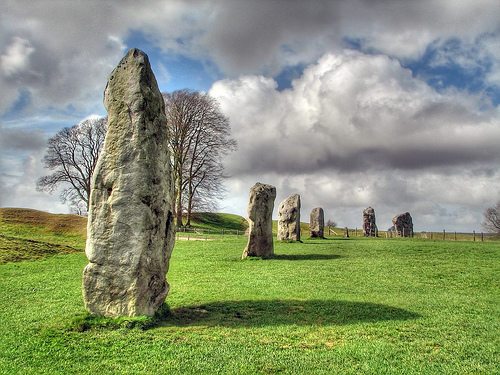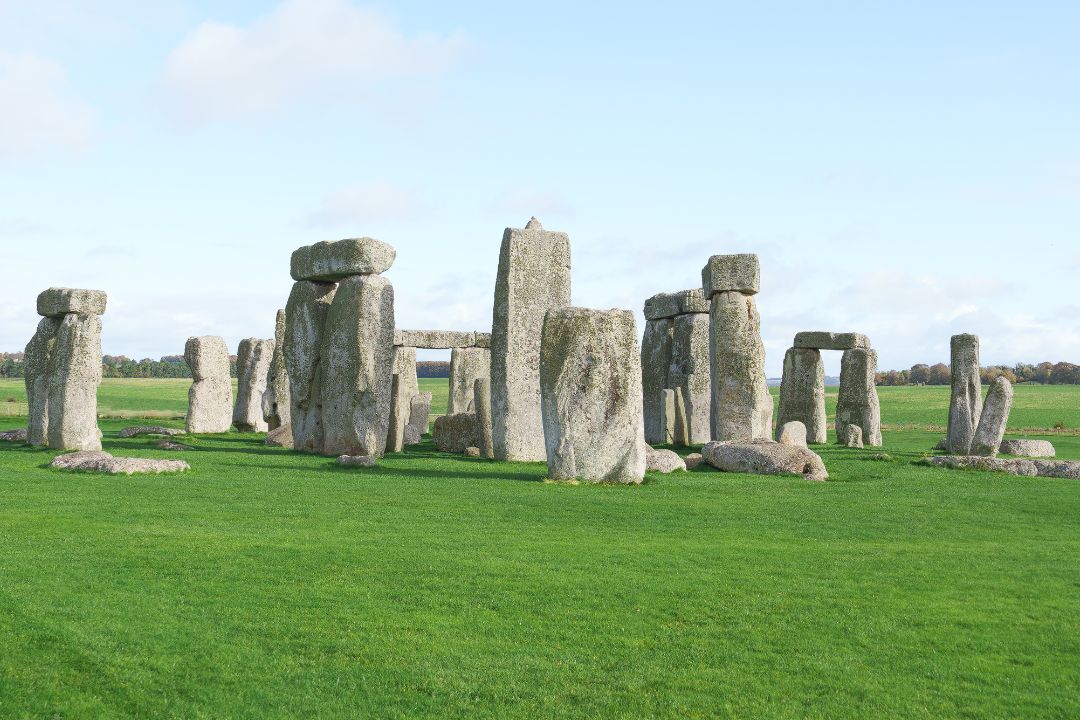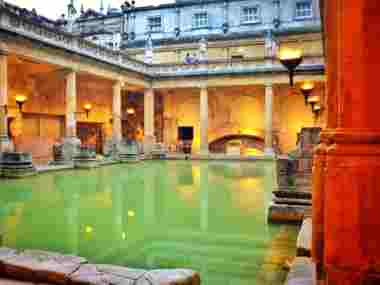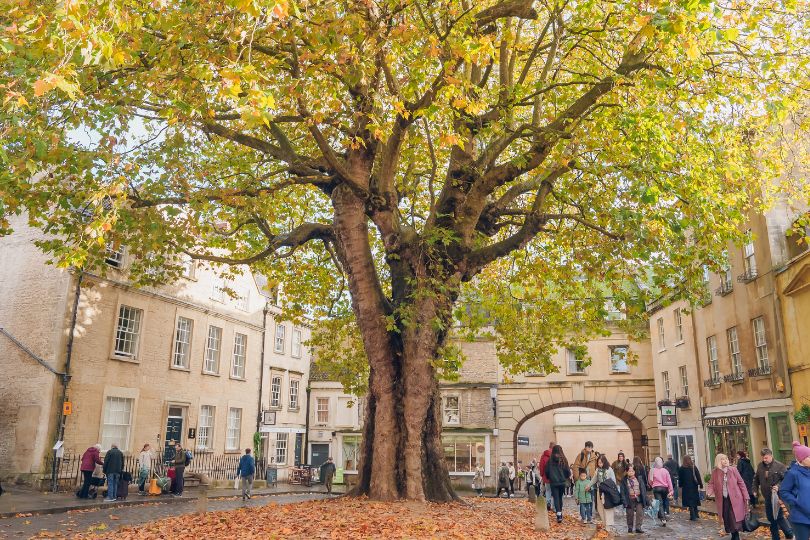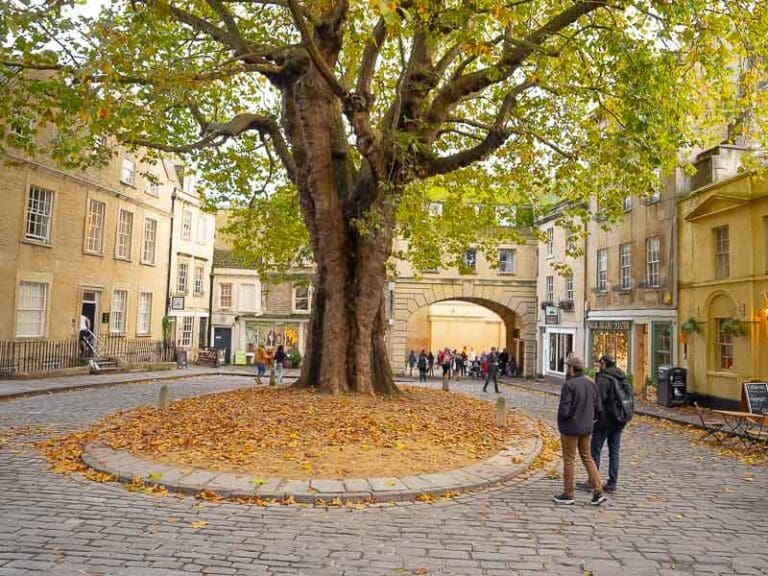Historic Sights To See in Bath on a Stonehenge & bath Day Tour - Summary
Discover the best historic sights in Bath, from the world-famous Roman Baths to the Georgian architecture of the Royal Crescent. Walk through centuries of history all within walking distance of Bath’s city centre. From the Bath Abbey, the Pump Room, and the charming Pulteney Bridge. Book a Stonehenge & Bath Day Tour from London, combining two iconic UNESCO World Heritage Sites in one popular tour, loved by visiting tourists.
Sights To See on a Day Tour of Bath
Explore the warm, golden stones and inviting architecture of Bath. Bath weaves together visual charm and a rich historical tapestry. As you venture through its diverse sights and profound history, consider this blog your go-to guide for uncovering more gems in the city. It’s the perfect complement to our other blog, “10 Best Things to Do in Bath by a Local,” linked at the bottom.
In this journey, we’ve picked 6 special historical places. From the iconic Royal Crescent, where Jane Austen once wandered, to the mysterious Hanging Tree (The Plane Tree), each spot adds its unique touch to Bath’s rich history. So, why settle for the usual? Let’s make your visit to Bath truly stand out.

The Royal Crescent
If you’re a fan of snapping photos and love 18th-century architecture, a visit to The Royal Crescent is a must. Known as the crown jewel of Bath, it boasts 30 townhouses constructed between 1767 and 1775. Bath’s crown jewel, it’s also the prime spot to soak in the beauty of Georgian architecture in its original form.
No.1 Royal Crescent takes the spotlight as an even more famous locale. This house, once the residence of the renowned writer Jane Austen from 1801 to 1867, adds a literary touch to the Crescent’s allure. Inspired by the city and its culture, Austen penned both “Persuasion” and “Northanger Abbey,” featuring Bath prominently in her novels.
The Crescent’s charm doesn’t fade with the seasons. It maintains it’s allure throughout the year, although it’s in summer that it truly shines. Only a 10-minute stroll from the city centre or station up from Lansdown Road. Plan a visit, capture the stunning architecture, and create lasting memories with friends and family.
The Ancient Plane Tree
In the heart of Abbey Green stands the Ancient Plane Tree. A towering testament to time and nature, dating back to 1793. Commanding attention and admiration, it is surrounded by locally cherished places like The Bath Sweet Shop, The Bath Bun, and The Crystal Palace Pub, creating a pleasant atmosphere essential to experiencing Bath.
Originally a walled courtyard for Bath Abbey in the 17th century, Abbey Green has transformed into a lively community, blending history with modern vibrancy. The Plane Tree, remains vibrant through the seasons, attracting performers to its golden stone surroundings. Abbey Green is a charming spot that captivates with its perfect acoustics, inviting choirs and singers to serenade visitors. Enjoy the enchantment of this corner of Bath!
To discover this area, follow the route towards the Abbey, take a right turn after the Pump Rooms, and continue your exploration. If in doubt, locals can guide you to the massive Plane tree or direct you to the Crystal Palace pub, both cherished landmarks.
Subscribe!
Get regular updates and discount codes to share with travel mates.
The Roman Baths
The Roman Empire is ingrained in the ancient history of Great Britain. To experience something of the ancient elegance, power, and high-class society of the once-prosperous Roman Empire, you’ll want to go to the Roman Baths. The Roman Baths were formed around 70 AD during the reign of the empire in Britain. Unfortunately, boilers were not invented during this time, rather the Baths were built upon the natural hot springs of Bath that were previously used by defeated Celts.
The Roman Baths were used for several purposes: general bathing for good hygiene care, social gatherings, business meetings, healing, and spiritual attractions. Famously, it was dedicated to the goddess Sulis Minerva.
The Roman Baths is now an official museum and a UNESCO World Heritage site. Open daily, visitors can see the Sacred Spring, the Great Bath, the Roman Temple, the East and West Baths, the Roman Gymnasium, and much more. The site offers self-guided and guided tours. Helpfully, it has 90% accessibility for wheelchair users and provides audio guides in 12 different languages.
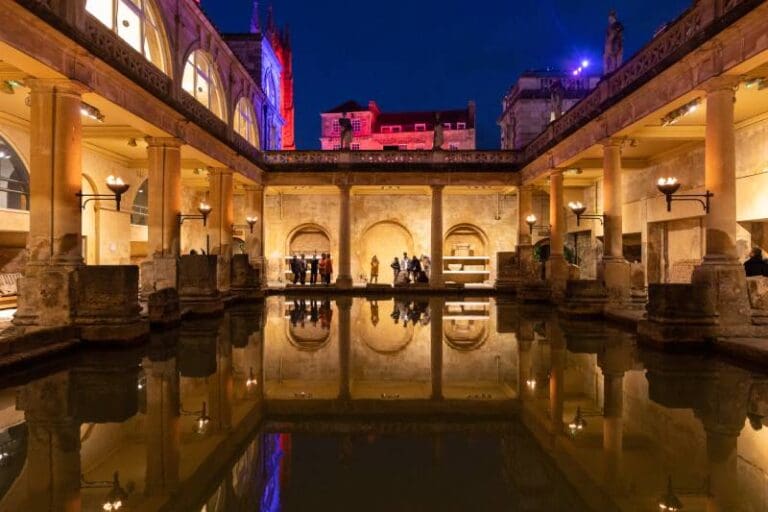
Visit the Roman Baths Museum in Bath and Wiltshire
Explore the Roman Baths museum in Bath – See the ancient thermal pools and sacred Spring, and artefacts from Roman Britain and the prehistoric Stonehenge in Wilshire.
The Queen’s Square
Step into the enchanting world of Queen’s Square, a creation by the brilliant mind, of John Wood. The north side, a puzzle of seven houses coming together in a grand palace style, is quite a sight. At the heart of it all stands the obelisk, placed by Beau Nash in 1735. Though it once had a needlepoint until a lightning strike in the 1830s changed its look, it adds a bit of mystery, a reminder that nature has its way with human craft.
Now, uncover a little gem in the southeast corner – a tablet telling a story. It honours His Royal Highness Frederick Prince of Wales and his consort in 1738, like a timeless thank-you note. Richard Nash, behind the obelisk, made sure the city’s gratitude stayed carved in stone. The obelisk itself has a plaque with an interesting history, originally inscribed in 1738, thanking Frederick Prince of Wales and his consort for their kindness to Bath.
Queen’s Square is a wonderful place to stop and simply admire your time at Bath. A great place for a picnic with the family or a brief break after visiting the Jane Austen Centre on a private tour by Anderson Tours.
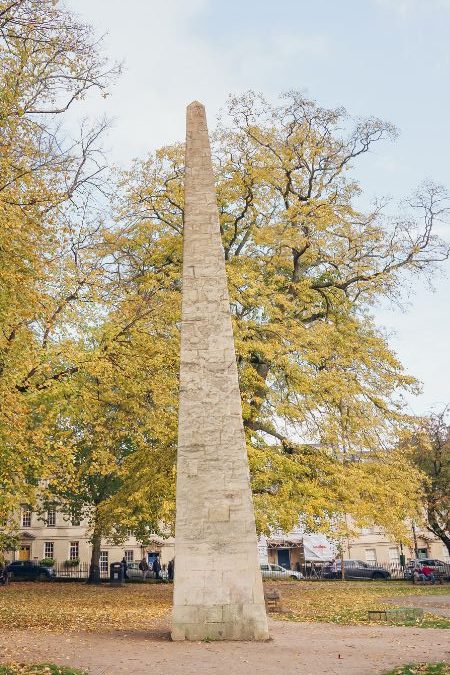
Beaufort Square
A lovely Georgian spot known for its classy architecture and peaceful vibes. If you’ve watched “Bridgerton” on Netflix, you might even recognize it! The Holburne Museum hangs out here, showing off cool artsy stuff and paintings that add a bit of culture to your Bath adventure.
But let’s dig a bit deeper into Beaufort Square. The Holburne Museum is like a time-travel machine, full of old stuff that tells stories from way back when. It’s not just a museum; it’s a cool journey into Bath’s fancy culture. And here’s a neat fact: Beaufort Square isn’t just pretty; it’s where all the fun happens. They throw art shows, music gigs, and even lively markets. The square has this awesome energy that beats with Bath’s cultural vibe.
So, when you’re hanging out in Beaufort Square, don’t just walk by; soak in the classy vibes. Check out the Holburne Museum, stroll around the square’s chill spots, and let the old-timey feel whisk you away. It’s more than a square; it’s like a living piece of Bath’s history, ready for you to explore and enjoy.
Getting to Beaufort Square is easy from the centre of Bath. Just head south from the Abbey, take a right after the Pump Rooms, and keep on going. Follow the signs, or just ask a friendly local – Beaufort Square is a local fave, so everyone knows where it is.
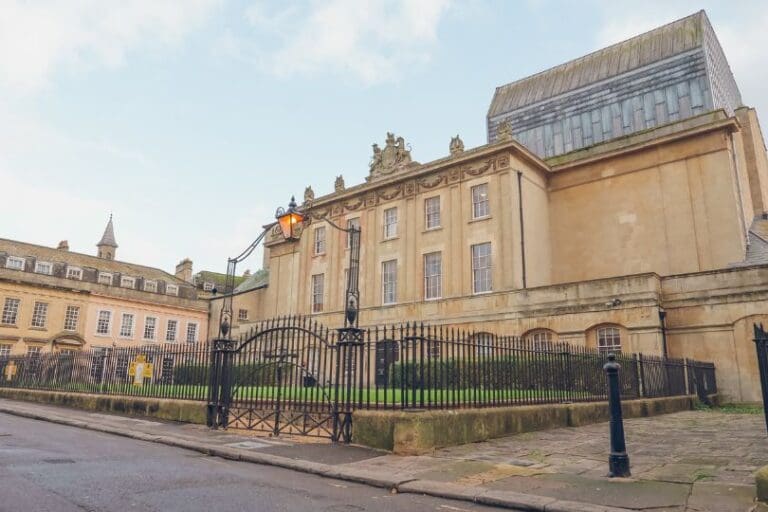
The Assembly Rooms
The Assembly Rooms served as the social hub of Bath’s high society during the 18th century. Frequented by the crème de la crème, including the illustrious Jane Austen, the rooms witnessed an array of social gatherings, from glittering balls to cultural soirées. It’s not just a ballroom; it’s a time capsule that allows us to dance through the pages of history.
Jane Austen, a frequent visitor to these hallowed halls, drew inspiration from The Assembly Rooms for her novel “Northanger Abbey.” As you walk through the same spaces where she once strolled, you can almost feel the echoes of her literary musings, turning a simple visit into a literary pilgrimage.
Fast forward to the present, and The Assembly Rooms continue to be a dynamic venue, hosting a myriad of events that bridge the gap between the past and the present. From elegant balls and concerts that echo classical melodies to contemporary exhibitions and lively weddings, these rooms are a living canvas where the spirit of Bath’s social life unfolds in every note and dance step.
To make the most of your visit, be sure to check The Assembly Rooms’ schedule for upcoming events. Whether you find yourself waltzing across the polished floors or admiring the exquisite architecture that frames each celebration, these rooms are more than just a venue; they are a celebration of life in all its grandeur.
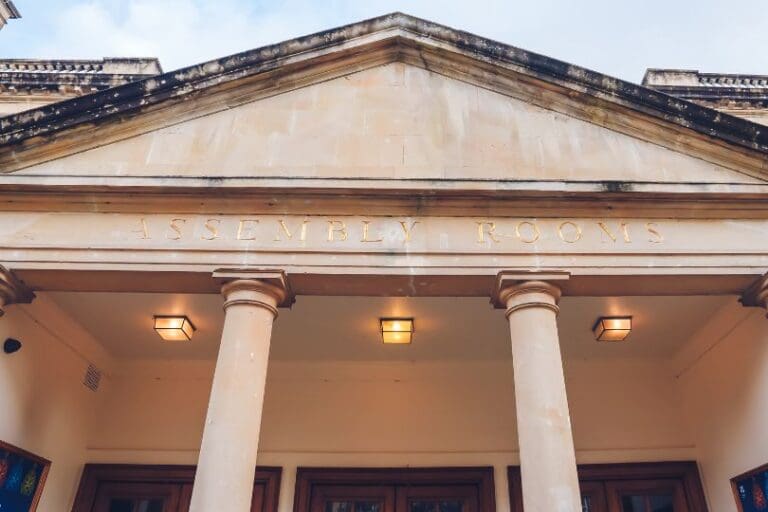
Day trips from London & Private Group Tours
Join us on popular day trips from London and ditch the travel planning to focus on attractions you want to see. Learn about our Private Group Tours also!
Subscribe!
Get regular updates and discount codes to share with travel mates.


